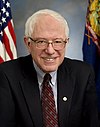Gov.
Bev Perdue shares her thoughts on the gay marriage fight taking place
in North Carolina on Tuesday and struggles to say whether she is for or
against gay marriage itself.
By Miranda Leitsinger, msnbc.com
Updated at 8:30 a.m. ET:
North Carolina voters approved a constitutional amendment Tuesday night
banning gay marriage, but the measure also goes one step further by not
allowing civil unions.
The state becomes the last in the
South to approve an anti-gay marriage amendment and joins 30 others with
similar measures. Incomplete returns Tuesday night showed the amendment
passing by 60 percent of the vote.
The amendment, also known as
Amendment One, would make marriage the only legal domestic union valid
in the state. Opponents said the measure was unnecessary because a state
statute has banned gay marriage in North Carolina since 1996. They also
argued that domestic partners – both straight and gay – and their
children could lose health benefits under the amendment, but advocates
for the new measure claim that will not happen.
Making this a constitutional amendment was important, said Rachel
Lee, a spokeswoman for Vote For Marriage NC, because “those statutes are
vulnerable to the will of an activist judge or future legislature who
could overturn the law with a single court ruling or by a single vote of
the legislature.”
Lee watched the election results at a party in
Raleigh with grassroots coordinators and coalition members. When it
became clear the amendment had passed, they cut a vanilla wedding cake
topped with a figurine of a bride and groom.
“If you looked at a
map of our country, you saw North Carolina as the only one in the
Southeast without an amendment preserving marriage between a man and a
woman,” Lee said after the results had come in. “North Carolina had a
target on her back.”
Half of Americans support gay marriage in new Gallup Poll
To
overturn the amendment approved Tuesday night, the legislature would
have to overrule the amendment by a three-fifths vote and get voter
approval. Before the amendment passed, a judge or simple legislative
majority could have overturned the 1996 statute banning gay marriage.
“This puts up a bigger barrier,” said John Dinan, a political science professor at Wake Forest University.
Dinan said the amendment was introduced after Republicans won a majority in both houses of the state legislature in 2010.
“It’s
been a pretty easy win in every southern state,” Dinan said. “It never
got to the ballot in North Carolina because Democratic legislatures
never let it get there.”
Dinan said the amendment’s impacts would not be immediate.

Allen Breed / AP
Hundreds
of people gather behind the state capitol for a rally supporting a
constitutional ban on gay marriage in Raleigh, N.C., on April 20, 2012.
“The
one place it could make a difference is in eight or nine cities in
North Carolina that give out insurance benefits to same-sex couples,”
Dinan said. “Lawyers might have to start taking a real close look at
those insurance benefits that are given out and they might have to
change those.”
Melissa and Libby Hodges of Durham could be among
those affected by the amendment. They worry their 5-year-old daughter
may lose her health benefits, as she is covered by Libby, who cannot
legally adopt her. By Tuesday afternoon, the moms had filled out
paperwork for private insurance.
Jeremy Kennedy, campaign manager
for Protect All NC Families, which was against the amendment, echoed the
concern about health benefits for domestic partners, gay or straight.
His group also is worried that victims of domestic violence may no
longer be covered by statutes addressing that type of crime.
“We
know the consequences that we’re listing, but there’s a whole bunch of
unintended consequences that we probably haven’t even thought of yet
that will come up in the courts after this,” Kennedy said.
Thomas
Peters, cultural director of the National Organization for Marriage,
which supports the amendment, said children of gay parents in other
states where similar amendments have passed have not lost their health
insurance. He said he doubts that would happen in North Carolina.
Lee said the amendment would “in no way impact domestic violence protections, child custody or end of life desires."
Voting
began early Tuesday on the marriage amendment and candidate races in
the 2012 primary, but 512,000 people – or 8 percent of registered voters
– already had participated through absentee ballot, according to the
State Board of Elections. That record turnout surpassed even the 2008
primary, which included Barack Obama and Hillary Clinton on the ballot,
according to Democracy North Carolina.
Several high-profile
figures – from former President Bill Clinton to evangelist Billy Graham –
and national advocacy groups weighed in on the amendment.
“We’re
having a great debate about marriage in this country, and it’s not at
all settled about which way we’re going to go,” Peters said.
Before
North Carolina's amendment passed, the last state to approve a
constitutional amendment did so in 2008. Eight states and the District
of Columbia allow same-sex marriage.
Back in Durham, Libby and Melissa Hodges were debating whether to move to another state, where gay marriage would be legal.
They
moved to North Carolina from Georgia in part because at the time, North
Carolina allowed gay partners to adopt their children. That is no
longer legal.
“My brother said, ‘If the amendment passes, North
Carolina will be more backward than Georgia, will you move back to
Georgia then?’” Melissa Hodges said. “I said, ‘You’re so wonderfully
sweet, but no.’”
But leaving North Carolina would be hard. Both
are city planners close to being vested in the state’s pension plan.
Selling their home would be difficult, Melissa Hodges added, and their
daughter was accepted into their first-choice kindergarten. Plus,
another move would take her away from her brother, with whom she is
close.
On Tuesday night, the Hodges watched the results online after putting their daughter to bed.
"She
asked us before we put her to bed to make sure to tell her in the
morning that we won," Melissa Hodges said. "She doesn't get the stuff
with health insurance, but we told her that we'll always take care of
her, not to worry about that."
Msnbc.com's Isolde Raftery contributed to this report.
In gay marriage vote, it's Bill Clinton versus Billy Graham
Bullied gay teen who fired stun gun is expelled
Smaller same-sex marriage battleground this year than in 2004
Judge calls prosecutor’s rejection of gay juror ‘shocking’











































